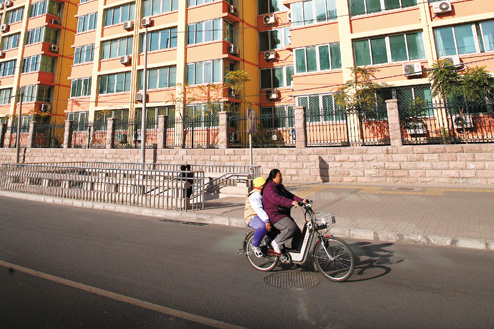Cats & Dogs
Dogs are more common than cats and the most popular mutt about town currently is the Pekinese, while cats tend to be a mixed lot. For now, there are no cat registration requirements. Dogs are another matter and restrictions vary by location. In urban Beijing (roughly inside the Fourth Ring Road) only one dog measuring no taller than 35cm is allowed per household. Guide dogs are an exception.
Diplomats living in embassy compounds have different regulations and generally the size rule does not apply.
To register your dog you need a dog-owner’s permit from your neighbourhood committee. They need your passport, proof of residence and, in the case of imported dogs, quarantine certificate. Afterwards, take the same documents plus the new permit and two passport-sized photos (head shot from the front) of the dog to your local police station to register. Some stations may request to see the dog itself. Registration fees are ¥1,000 or ¥500 for spayed or neutered dogs if you can prove the dog was treated by a legally registered and licensed animal hospital. The registration fee entitles you to a free check-up, including a rabies vaccine, at officially licensed animal hospitals. These hospitals will then issue a Beijing Animal Health & Immunity Certificate (also known as the ‘Red Vaccination Book’), which you will need to re-register your dog next year, to move to another city in China, and to export it out of China. Annual re-registration costs ¥500.
Households outside the city can have one dog per passport holder. A dog-owner’s permit is not required, and registration is merely ¥200, though it does not come with the free check-up. If you live in a villa in the Shunyi district, you may be able to register your dog at the villa office and bypass the police station. If your dog is caught without registration anywhere in Beijing, the fine is ¥2,000 in addition to the registration fee. Avoiding fines will result in the kennelling of your dog.
Diplomats living in embassy compounds have different regulations and generally the size rule does not apply.
To register your dog you need a dog-owner’s permit from your neighbourhood committee. They need your passport, proof of residence and, in the case of imported dogs, quarantine certificate. Afterwards, take the same documents plus the new permit and two passport-sized photos (head shot from the front) of the dog to your local police station to register. Some stations may request to see the dog itself. Registration fees are ¥1,000 or ¥500 for spayed or neutered dogs if you can prove the dog was treated by a legally registered and licensed animal hospital. The registration fee entitles you to a free check-up, including a rabies vaccine, at officially licensed animal hospitals. These hospitals will then issue a Beijing Animal Health & Immunity Certificate (also known as the ‘Red Vaccination Book’), which you will need to re-register your dog next year, to move to another city in China, and to export it out of China. Annual re-registration costs ¥500.
Households outside the city can have one dog per passport holder. A dog-owner’s permit is not required, and registration is merely ¥200, though it does not come with the free check-up. If you live in a villa in the Shunyi district, you may be able to register your dog at the villa office and bypass the police station. If your dog is caught without registration anywhere in Beijing, the fine is ¥2,000 in addition to the registration fee. Avoiding fines will result in the kennelling of your dog.













